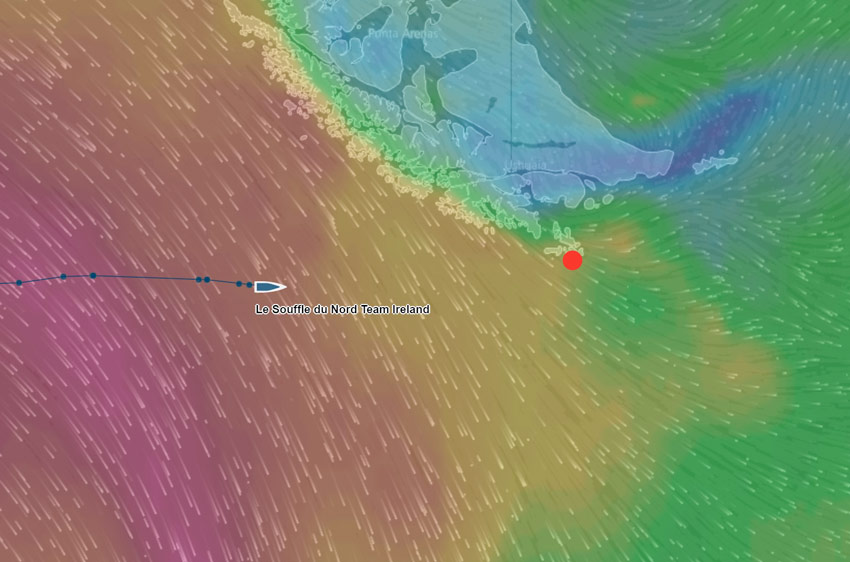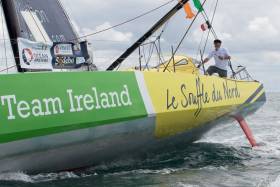Displaying items by tag: Kilcullen Team Ireland
Enda O’Coineen Set To Round Cape Horn Solo This Weekend
In the coming 24 hours, Enda O’Coineen is on course to sail solo around the notorious Cape Horn as he endeavours to complete his solo sailing lap of the planet.
Enda restarted his voyage in late January a little over a year since his Vendée Globe challenge came to an abrupt end, when his mast came crashing down some 180 miles south of New Zealand.
Having sailed more than half-way around the world from Les Sables in France, Enda was determined to finish what he started.
Initial plans to repair his boat changed when the opportunity arose to combine his efforts with another retired Vendée Globe team and merge as Le Souffle du Nord Kilcullen Team Ireland, with the mission to sail back to France and unofficially finish the race.
This weekend will be only one of a few recorded times that an Irish sailor has rounded the southern tip of the South American continent.

Speaking about historic event, Enda O’Coineen said: “Cape Horn is one of, if not, the most feared pieces of land to round on the planet. And it is certainly living up to its reputation as I approach with 60kph winds and roaring seas hurtling me towards the great cape.
“This will hopefully be the coldest and wildest weather I will encounter as I then turn north and start the final leg up the Atlantic Ocean and into Les Sables d’Olonne to finish what I started.
“It’s hard to explain why I put myself in this position, alone, cold, and exhausted as the bottom of the earth but as any sailor or adventurer knows as soon as you reach your destination and accomplish your goal you quickly forget about the hardship.”
Enda added: “Right now I am living on the edge, moment by moment. Having the joint backing of two teams and flying both the Irish and French flags is an honour. The work of Le Souffle du Nord and the Atlantic Youth Trust keeps me motivated during the lows.”
The timing of the rounding coincides with summer in the Southern Hemisphere, but the latitude and converging seas make Cape Horn a daunting prospect year-round.
For live tracking of Enda’s voyage visit www.teamireland.ie.





























































